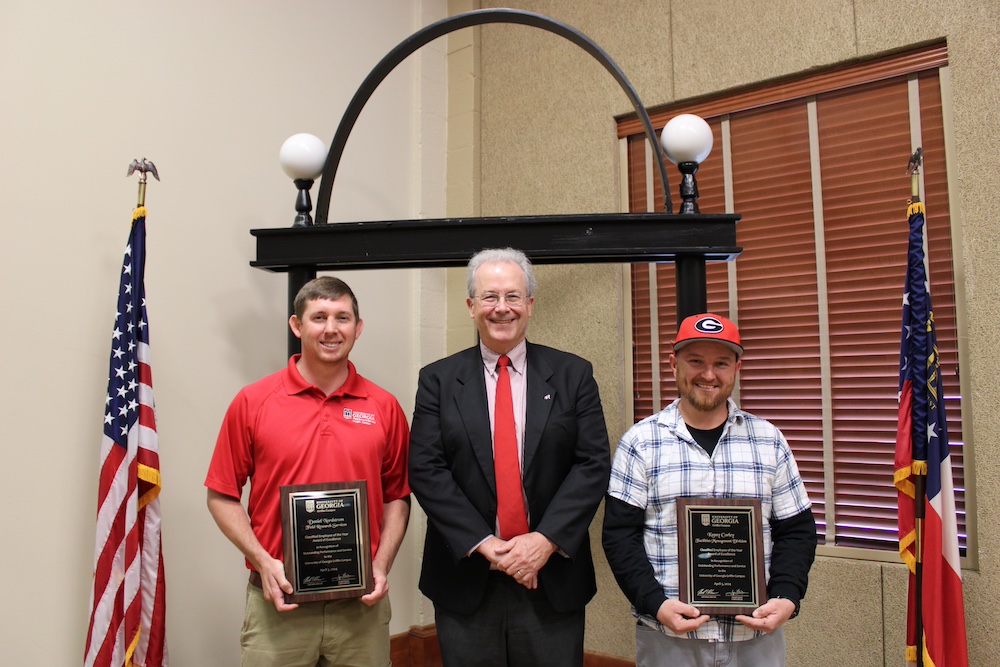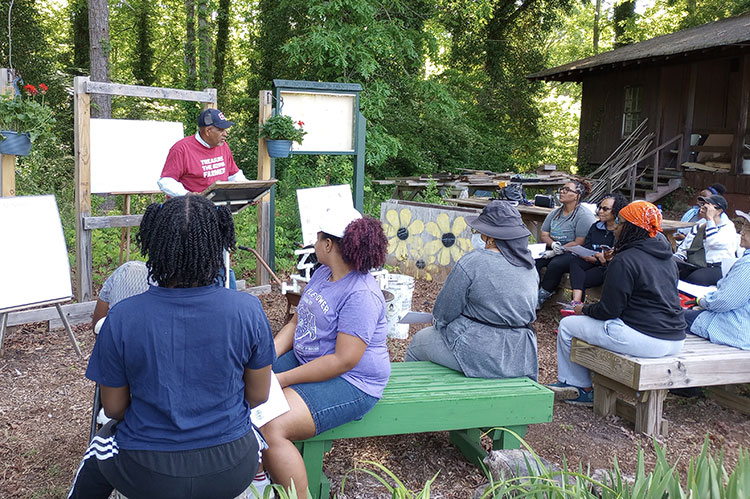The creepy-crawlies are all over your garden. The withering crud is taking over your bushes. Who you gonna call? Start with your county Extension Service agent.
The voice of the University of Georgia College of Agricultural and Environmental Sciences, your agent has years of experience and lots of resources to back an identification of weeds, diseases and insects.
But if your problem stumps the best of them, Taft Eaker is on call.
"My job is to help and support county agents in dealing with homeowners' problems," said Eaker, the plant pathologist who identifies and diagnoses samples that come into the Homeowner IPM Clinic.
Since 1994, this clinic has worked only with home garden problems. Samples from farmers and other commercial sources go to the UGA Plant Disease Clinic.
"This has been a record year so far," Eaker said. "I'm sure it's due to the unusual weather. The abnormally cool and wet spring brought on a lot of problems."
The clinic has handled almost 6,000 disease and insect samples in the past three years. It fields questions about crops, vegetables, fruits and nuts, ornamentals, trees and grasses.
Every year, home lawn diagnoses have led the way. But questions about woody ornamentals aren't far behind.
"I definitely see a lot of turf, particularly centipede lawns with problems," Eaker said. "And we get in a good many ornamentals -- junipers, leyland cypress, bradford pears. And a lot of tomatoes and other vegetables. But the plants we get run the gamut. They could be anything."
Once Eaker identifies the insects and diagnoses the diseases, he and the agents apply the "IPM" in the Clinic's name. That stands for Integrated Pest Management, a technique to control problems with the least chemicals.
"If they don't need to spray, we suggest cultural approaches," Eaker said. "We can prevent a lot of lawn diseases simply by watering earlier in the day so the grass dries before nightfall.
"Homeowners can also do sanitation practices and select resistant plant varieties," he said. "They have lots of choices besides chemicals."
For samples submitted through the county agent, there's no fee for the clinic's services. If you submit it yourself or from out-of-state, the fee is $25.
Eaker responds to the county agent with a simple, clear explanation of the problem and recommendations for control. Sometimes he refers the client to an extension publication for more information on the problem.
"I think the work this clinic does is critical," Eaker said. "For many homeowners, this may be the first visit to their county agent's office. So I want to support that agent with a quick, correct recommendation."
Agents and World Wide Web-literate clientele can find out more about the clinic's work. Just check the home page for the College of Agricultural and Environmental Sciences.
Under "department," go to the plant pathology department's home page and click on "Outbreaks and Updates." You'll find a monthly summary by county of the clinic's samples.
Eaker prepares seasonal reports on problems and trends. He adds a digital photograph for easy identification of some diseases and insects.
The Web page address is www.ces.uga/edu/agriculture/plantpath/docs/update.html.






